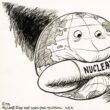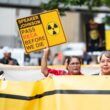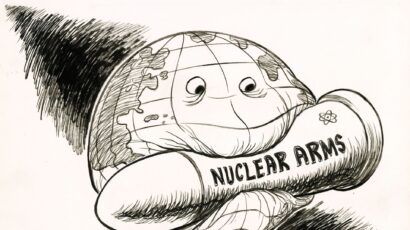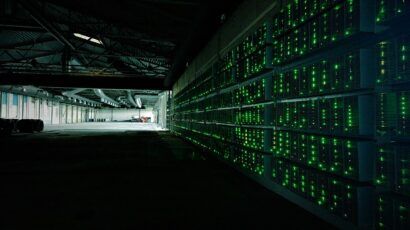Too much proliferation focus, too little energy
By P. R. Kumaraswamy |
Western governments and the nonproliferation community in general tend to view every developing nation that pursues nuclear power as a potential risk for nuclear weapons proliferation. This attitude is unfortunate for several reasons. First, it fails to recognize the pressing need for increased energy supply that many developing countries face. Second, it deflects attention from the legitimate issue of poor safety practices at developing-world nuclear power plants. Third, it reinforces the Nuclear Non-Proliferation Treaty's (NPT) division of the world into nuclear "haves" and "have-nots."
Low energy. In the developing world, a number of countries are perpetually energy-starved. In India, for example, economic liberalization over the past two decades has resulted in sharply increased energy demand that cannot be satisfied solely with electricity derived from hydrocarbons. Thus the country's urban areas are routinely subjected to rolling blackouts (otherwise known as "load shedding"). These power cuts, especially prevalent during the hot summer months, force many business owners to establish backup electricity options, like diesel generators. Such arrangements are costly and polluting and constitute a burden both for business owners and for the economy at large. In addition, the country must import a large share of the hydrocarbons it uses, including about 70 percent of the oil it consumes, and this exacerbates the country's trade deficit.
China, too, has become energy deficient due to rapid economic growth. Other developing countries, like Jordan, enjoy only limited energy resources to begin with. But whatever their circumstances, many developing countries must increase their energy supplies if they are to achieve and sustain economic growth and fulfill their people's aspirations.
Unfortunately, every available option for increasing energy supply presents problems of some sort. Oil is a polluting resource; imported oil is subject to wide price fluctuations; and dependence on foreign oil becomes especially problematic whenever the Persian Gulf experiences conflict or tension. Coal is even more polluting than oil. Hydropower, meanwhile, depends on the vagaries of rainfall, and a country dependent on hydropower can suffer acute electricity shortages during times of drought. Alternative energy sources like solar, wind, and biofuels have not yet taken hold because of the large investments necessary and problems with commercial viability.
For many developing countries, then, nuclear energy is — plain and simple — a practical means for increasing energy supply and thus enabling economic progress. Much of the international community, however, imposes its proliferation concerns on nuclear-power programs that do not merit such worries. To be sure, proliferation concerns are justified in some instances. Iran springs to mind. Also, India started its atomic energy program with the stated aim of pursuing only peaceful uses but eventually began a nuclear weapons program under the same aegis (though the fissile materials for India's nuclear weapons are believed not to be derived from power production reactors). Still, not all countries that have pursued nuclear power in the past have pursued weapons capability — and indeed, some countries' pursuit of nuclear power has hardly even elicited concerns about proliferation, much less resulted in proliferation itself.
Japan is an example. In its case, of course, proliferation fears were muted because the US military maintained a presence in the country and the United States acted as a security guarantor in the region. But these factors alone were not sufficient to eliminate proliferation concerns. Rather, the deciding factor was postwar Japan's decision to demilitarize its foreign policy and to improve fractious relationships with neighbors. Thus, Japan's development of nuclear power was seen abroad as an integral part of the country's economic policy — not as part of its strategic policy. Other countries can try to emulate this model today, though doing so requires a willingness on their part to pursue transparent, credible policies that are open to international scrutiny.
Safety last. In any case, the key problem that nuclear energy presents in most developing countries is not proliferation but plant safety. In many developing nations, the idea of public safety is met with apathy. In India and China, for example, the national rail transportation systems experience unacceptably high accident rates, yet this does not deter millions of people from riding trains daily. Similarly, tolerant attitudes apply to nuclear safety, and this problem is compounded in many cases by inadequate funding. Thus, some nuclear energy programs in the developing world compromise on standards, utilize inadequate materials, suffer from corruption, and generally perform abysmally in nuclear safety.
Making matters worse, some of these nuclear facilities are located in areas prone to earthquake. While this is also true of Japan, of course, government regulators there enforce rigorous construction standards meant to minimize structural damage during earthquakes, including damage to nuclear power plants. This sort of rigor is not maintained in poorer countries. The accident at Japan's Fukushima Daiichi Nuclear Power Station, meanwhile, demonstrated the difficulties that even highly developed countries can experience in managing a nuclear disaster. Less developed countries would certainly face even greater struggles under similar circumstances.
Encouragingly, the Fukushima disaster has heightened public awareness of nuclear safety issues in the developing world. In India, protests over the under-construction Kudankulam nuclear facility in the southern state of Tamil Nadu are one manifestation of such popular concerns. (Public fears there are only intensified by the fact that the area was affected by the 2004 Indian Ocean tsunami.) One hopes that such public engagement will eventually lead to improved safety conditions at nuclear facilities in the developing world.
No technology is immune to accidents. Nor is progress ever free of risk. Nuclear safety is simply another realm of technology — admittedly, a complex and expensive realm — in which progress can be achieved over time. In the short term, though, the number of countries capable of providing nuclear energy to their populations is limited; therefore, it should be possible for nuclear safety challenges in this limited number of countries to be satisfactorily addressed.
Meanwhile, the international community must abandon its traditional attitude according to which every country seeking nuclear power is a potential weapons proliferator. The NPT has evolved into a cartel of the nuclear-weapons "haves," but the same should not be allowed to occur where nuclear energy is concerned. Certainly, proliferation remains a legitimate worry in a few cases, and all nuclear power plants must be brought under the International Atomic Energy Agency's inspection regime. But misplaced proliferation fears must not interfere with developing nations' legitimate efforts to meet their urgent energy needs.















